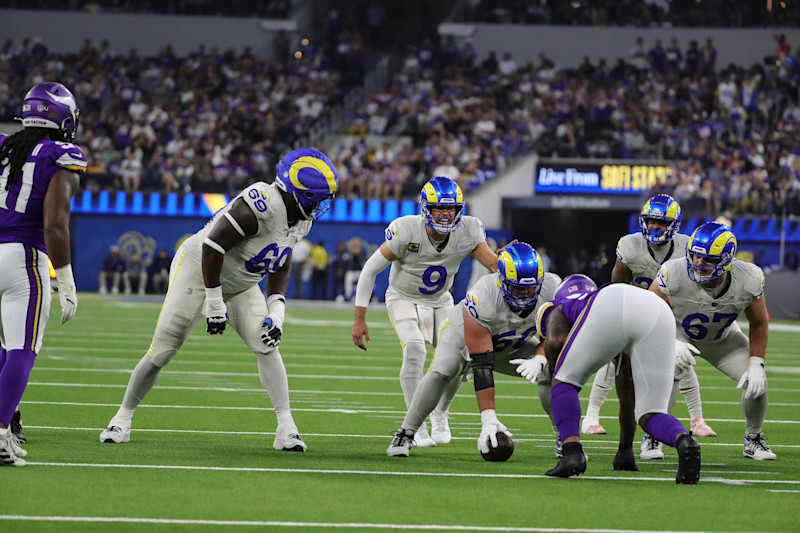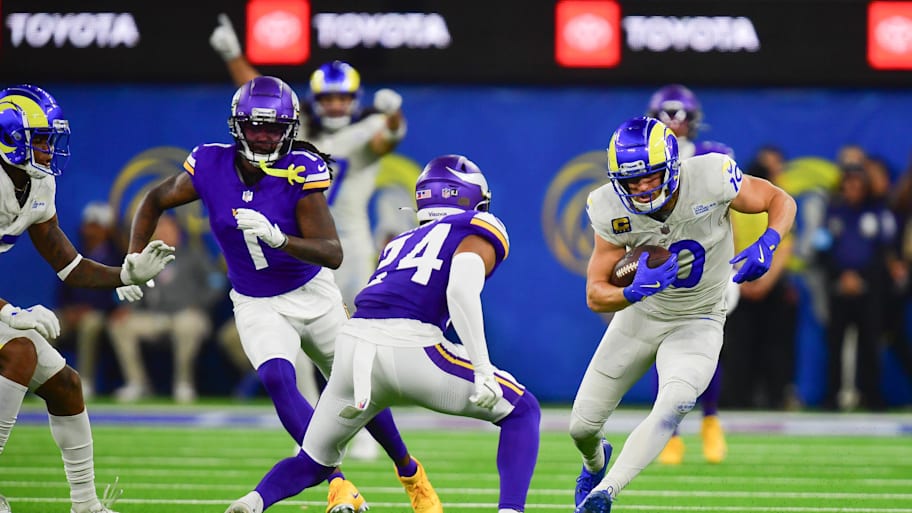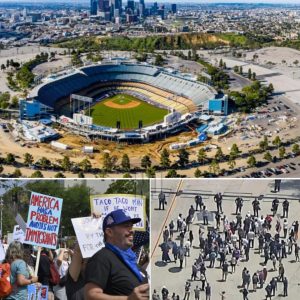Minnesota Vikings and Los Angeles Rams Wild Card Game Relocated to Arizona
A Sudden Change of Venue for the Vikings-Rams Wild Card Game
The Minnesota Vikings and Los Angeles Rams were initially set to clash in a high-stakes Wild Card playoff game at SoFi Stadium on Monday night. However, due to the ongoing wildfires wreaking havoc across Los Angeles, the NFL has made the difficult decision to move the game to State Farm Stadium in Glendale, Arizona. This decision, announced on Thursday, comes after multiple wildfires have left a trail of destruction, impacting not just homes and businesses but also causing hazardous air quality that poses risks to public health and safety.

The Impact of Wildfires on Los Angeles and SoFi Stadium
Though the wildfires have not directly affected SoFi Stadium or caused damage to the surrounding area, the situation is far from ideal. The fires, ignited by a powerful windstorm on Tuesday, rapidly spread across more than 3,000 acres, consuming over 1,000 structures by Wednesday afternoon. The result? A blanket of thick smoke that has severely diminished the air quality in the city, making it unsafe for players, staff, and fans alike. Despite SoFi Stadium being intact, the environment surrounding it simply cannot host a game under such hazardous conditions.
Safety and Cooperation: The NFL’s Response
In collaboration with the NFL Players Association (NFLPA), the league made the call to relocate the game to State Farm Stadium, located 376 miles east of SoFi Stadium in Glendale, Arizona. While this shift is unprecedented in the modern NFL, it is certainly not the first time that the league has had to make adjustments due to external factors. The safety of everyone involved – from players to fans – remains the top priority.

Historical Precedents for Relocated Games
The NFL has a history of relocating games due to various weather-related issues, but this shift is particularly noteworthy for the Vikings. Fans of Minnesota’s football team know all too well that their games have been moved in the past due to weather. For instance, in 2010, two Vikings home games were displaced after the Metrodome roof collapsed. Their game against the New York Giants was moved to Ford Field in Detroit, while a later game against the Bears was played at the University of Minnesota. That season, even a game scheduled in Philadelphia had to be postponed due to a blizzard, adding another layer to the already disrupted season.
Relocations in NFL History: A Unique Occurrence
Relocations have not only occurred due to weather events. Back in 1969, the Vikings’ game against the Green Bay Packers was moved from Metropolitan Stadium to Memorial Stadium at the University of Minnesota. This was due to conflicts with Major League Baseball’s postseason schedule, as the Vikings shared their stadium with the Twins. The NFL has also seen games relocated because of hurricanes, snowstorms, earthquakes, and even national tragedies, such as the 9/11 terrorist attacks and the assassination of President John F. Kennedy in 1963.

A Rare NFL Playoff Relocation: 1936 as a Point of Reference
Perhaps most intriguing is the fact that this Wild Card game between the Vikings and Rams will mark the first time an NFL playoff game has been relocated since 1936. Back then, the Green Bay Packers and Boston Redskins (now the Washington Commanders) were scheduled to play in the NFL Championship game. However, due to poor attendance in Boston, the game was moved to the Polo Grounds in New York, which was believed to have better attendance potential and, consequently, more revenue for the league.
A Historic Playoff Matchup Awaits in Arizona
As history shows, relocations are not common in the NFL, particularly in playoff scenarios. The Vikings and Rams will now compete at a neutral site, and though this changes the dynamics of the matchup, it is clear that both teams are committed to giving their all in this critical Wild Card game. Fans from both sides will also have the chance to attend the game in Arizona, a rare opportunity to witness such a monumental postseason event away from the usual home-field advantage. It’s a situation no one could have predicted, but one that will undoubtedly add to the drama of the 2023 NFL playoffs.





